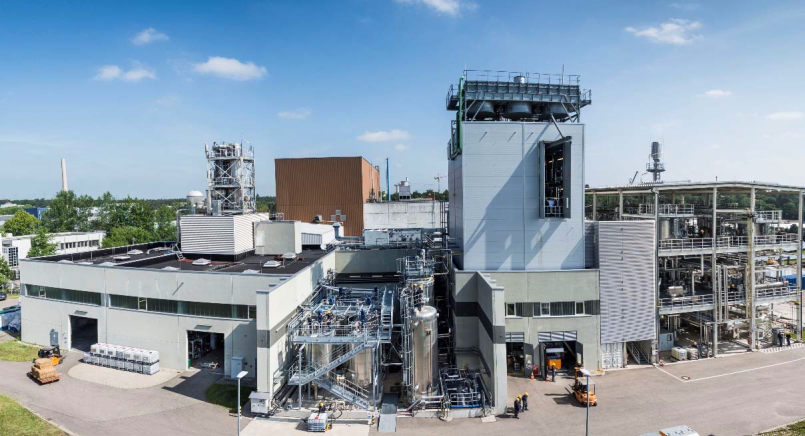Case studies of advanced biofuel technologies
The full report is available here
This report was delivered in the frame of the project ‘Assessment of successes and lessons learned for biofuels deployment’. In this task, case studies from Germany, Sweden and Canada were accessed to illustrate examples of progress in developing and scaling up advanced/emerging biofuels production technologies. In addition, lessons learned in shortcomings or problems or other issues in the commercial development are also provided in the case studies. Examples of the technologies have been chosen based on the expertise of the members and the maturity of the technology (at least TRL7).
Case studies and their status:
- Clariant – Sunliquid® Enzymatic hydrolysis to ethanol (Germany). This technology was developed from ~2006 and the first commercial facility recently brought to operation in 2022 in Romania. The technology development was supported by the operation of a pilot/demonstration plant and experience gaining through funding for the construction of the first commercial facility.
- KIT – Bioliq® pyrolysis and gasification with synthesis (Germany). The KIT Bioliq technology platform is engaged in the gasification technology scale-up, but also incorporates other key processes for the production of biofuels as pyrolysis, methanol/ DME synthesis and methanol-to-gasoline synthesis. The production facility fulfils its objective of a research platform and is actually being used in different projects.
- CHOREN – Gasification and Fischer-Tropsch synthesis (Germany). Having a pilot plant in operation since 1997, Choren built a demonstration plant in 2009 and had plans to build a commercial plant in 2012, but the company declared insolvency in 2011 and the production of biofuels through Fischer-Tropsch synthesis could not be further scaled-up. Until now there is no success in reactivation of this technology approach.
- Chemrec – Black liquor gasification and methanol/DME synthesis (Sweden). Chemrec has demonstrated the world’s only plant for bio-DME production by gasification of black liquor including an extensive technology verification with many thousand hours of operation. A planned commercial large-scale project still hasn’t reached a go-ahead. Overall, the project represents a technical success. The fuels produced were also tested in new DME trucks.
- GoBiGas – Biomass gasification with methanation (Sweden). GoBiGas is part of Göteborg Energi’s (Gothenburg Energy) investment programme to reduce the use of fossil fuels. The purpose of the project was to demonstrate the possibilities of gasification technology and to build a plant for a biomethane product of natural gas quality. Despite technological success a commercial plant was not realized due to missing economic competitiveness.
- SunPine – Esterification and distillation of tall oil (Sweden). SunPine and Preem have developed a method to manufacture a bio-based fuel for diesel vehicles with crude tall oil as a base. The crude tall oil is a by-product from the pulp and paper industry and SunPine produces a Raw Tall oil Diesel also named crude tall diesel, which is used for the production of Preem’s tall diesel oil, which is an HVO diesel. The process is commercial and currently supplies around half of the biodiesel product sold by Preem.
- Enerkem – Waste gasification for alcohol production (Canada). In 2014, Enerkem launched the world’s first full-scale MSW-to-biofuels and chemicals facility in Edmonton, Alberta, and started producing methanol. With the addition of a methanol-to-ethanol converter unit, the plant also began producing ethanol in 2017. All its operational milestones including ISCC certification were achieved.
The essential learnings from these case studies are related to:
- Financing new production plants: the critical factors are
- secured biomass supply/local feedstock availability with feasible feedstock prices,
- stability of the regulatory framework, long-term perspective, binding mandates,
- the CAPEX dimension and financing costs.
- Financing of first-of-a-kind technology plants requires higher investments and support (e.g. guaranteed biofuels price) than following plants.
- Political decisions: these ultimately and irrevocably determine success of biofuel production projects.
- Technology maturity: large first-of-its-kind plants require special regulation that can gradually be shifted from specific to general with increasing maturity and number of plants. Biofuels quotas alone are not sufficient to support new technology and large kind plants; additional support and security on value of renewables is needed.
- Awareness of infrastructure requirements: especially cost reasons and compatibility with the existing infrastructure for plan operation and handling of feedstocks and plant products are key issues.
This report was delivered in the frame of the project ‘Assessment of successes and lessons learned for biofuels deployment’, work package 3.
The full set of reports is available here

Bioliq demonstration plant at KIT in Karlsruhe, Germany (© KIT)


